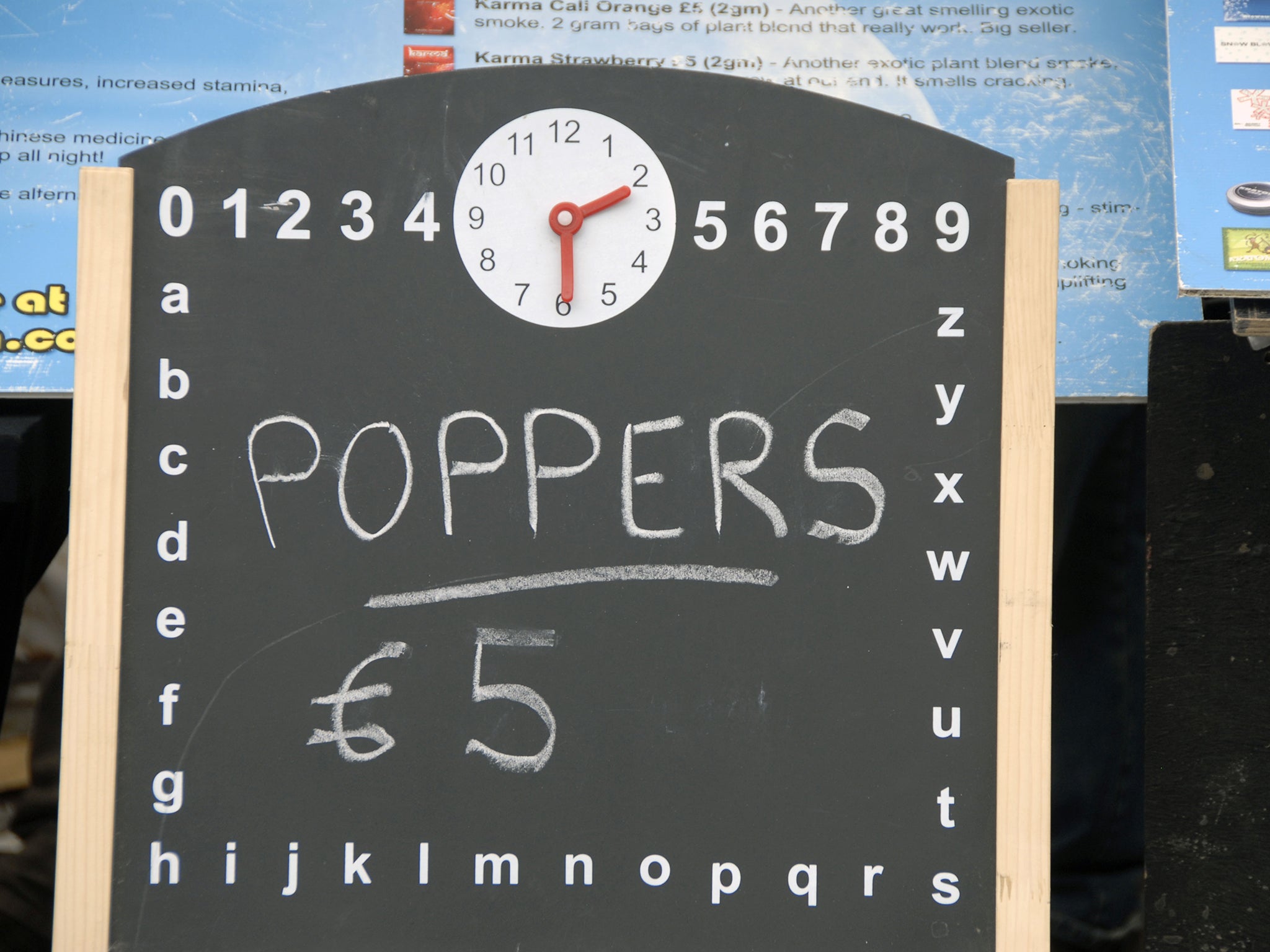Legal highs: Poppers should not be banned, MPs say
A select committee report warns that a new law targeting 'designer drugs' is a rushed and flawed piece of legislation

The Government should abandon plans to ban party drug poppers in a new law targeting the booming industry in legal highs, MPs say.
The plan to outlaw poppers – which create a short-lived head rush when sniffed from a bottle – is part of rushed and flawed piece of legislation aimed at countering the rise of designer drugs blamed for 60 deaths in 2013 in England and Wales, according to a new report by the Home Affairs select committee.
Poppers are popular on the gay scene for short-term sexual boosts and campaigners had warned that banning them would either drive their sale underground and see users switch to more harmful drugs. They are sold in small bottles, with names like Ram, Thrust and Rock Hard.
The Home Office has said that poppers, part of a group of chemicals called alkyl nitrates, would be part of the ban on making, distributing and selling drugs known as new psychoactive substances (NPS).
But the Government’s main drugs advisory body says that any harmful effects of poppers are not capable of creating a “societal problem” – and the MPs say today that they should be excluded from the new legislation.
Britain is the largest market for the designer drugs in the EU with 670,000 people aged 15 to 24 experimenting with them, according to a study by the UN Office on Drugs and Crime in 2013, with experts warning they pose a major health risk despite the label of “legal highs”.
Manufacturers have been able to keep a step ahead of the law by tinkering with the chemical compounds of the drugs after authorities have gone through the lengthy legal process of banning one. More than 500 new drugs have been banned already, prompting the UN to describe it as a “hydra-headed” problem.
The Home Office plans a blanket ban for such products with sellers facing a seven-year jail term but the speed of the process has created weaknesses in the legislation, according to the parliamentary Home Affairs select committee. It said that officials had failed to properly examine the effect of an existing ban on the substances in Ireland.
The MPs heard that most of the drugs were sold through an estimated 335 so-called ‘head shops’ and legislation to ban them would shift the sales online, making it harder for police to enforce any ban. Their report also highlighted claims by some academics and police that it could be difficult to secure prosecutions because of the ever-changing nature of the substances and the fact that expensive medical tests would be needed to prove they had “psychoactive” effects.
Keith Vaz, chairman of the committee, said: “Britain uses more psychoactive substances than any other country in Europe. Legislating on this issue is the right thing to do, however doing so at speed without any consultation may be counterproductive.”
The MPs said that the drugs advisory body should also review whether nitrous oxide - known as “laughing gas” and the second most popular drug behind cannabis for young people – should become a controlled drug.
